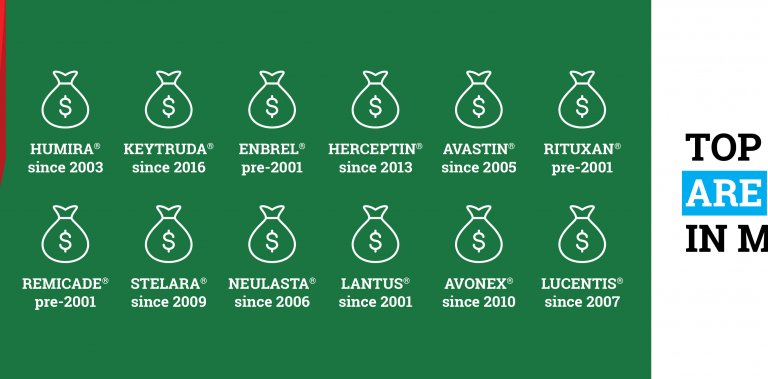The pharmaceutical provisions included in the negotiated text of the U.S.-Mexico-Canada Agreement will do many things. But creating a market for biologics in Mexico is not one of them. Why? Because pharmaceutical companies have been selling original biologics in Mexico since before 2001.
Mexico, based on drug regulator COFEPRIS’s policy, provides five-years of data exclusivity for new chemical entities. While biologics are not explicitly included in the COFEPRIS regulations, they have, for practical purposes, extended that protection to biologics as well:
In fact, of the top 12 selling biologics in the United States, all of them are available in Mexico. For example:
- The best-selling drug in the world, Humira ($19.9 billion in global sales in 2018), was registered by the Mexican regulatory authority in 2003 and still does not face biosimilar competition in Mexico (but it does in Europe).
- Avastin ($6.85 billion in global sales in 2018) was registered in 2005 and does not face biosimilar competition in Mexico; a biosimilar was approved in Europe in 2018.
- Lucentis ($1.67 in global sales in 2018) received approval in Mexico in 2007 and does not face biosimilar competition in the market.
Provisions that extend biologic exclusivity past five years are not needed in the USMCA to establish a robust biologic market. That market already exists.
Download a PDF of more myths vs. facts: Pharmaceutical Provisions in the USMCA Myths vs. Facts
By Jonathan Kimball, AAM Vice President, Trade and International Affairs
Learn how your generic and biosimilar industry is committed to your health.





